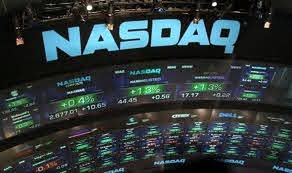Market Capitalization
What is Market Capitalization?
Market capitalization, also known as market cap, is the aggregate valuation of the company based on its current share price and the total number of outstanding stocks. Market Cap is the total market value of a company’s outstanding shares. For example, let us assume for a company XYZ, the total number of outstanding shares is INR 2,00,000 and the current price of 1 share= INR 1,500 then the market capitalization of the company XYZ is INR 75,00,00,000 (200000* 1500).

Market cap measures a company's worth in the Open Market, as well as the market's perception of its future prospects. It reflects what investors are willing to pay for its stock. Also, market capitalization allows investors to understand the relative size of one company versus another.
Market Capitalization Categories
Market capitalization is categoriesed into large cap, mid cap, and small cap. There are different market cap cutoffs for each category, as per individuals, but the categories are often described as follows:
Large-cap stocks
Large caps are typically defined as companies with market caps that are NR 1000 cr or above. These companies are firms that have well-established themselves in the India market and are leading players firms in their Industry sectors. Furthermore, they have a strong track record of paying dividends regularly.
List of Large Cap Companies
Some of the large cap companies in India are-
- Axis Bank
- SBI
- Bharti Airtel
- Coal India
- HDFC Bank
- Hero Motocorp
- Infosys Computers
- ITC Cigarettes
- ICICI Bank
- Maruti Suzuki
- Kotak Mahindra
- M&M Auto
- Reliance
Talk to our investment specialist
Mid-cap stock
Mid caps are typically defined as companies with market caps that are between INR 500 Cr to INR 10,000 Cr. Mid cap companies that are small or mid-sized are flexible and can adapt changes faster. That is why such companies have more potential of higher growth.
List of Mid Cap Companies
Some of the Mid cap companies in India are-
- Allahabad Bank
- CRISIL
- Apollo Hospital
- Blue Dart
- GE T&D India
- Reliance Comm
- Jaiprakash Asso
- Tata Global Bev
Small-cap stocks
Small caps are typically defined as firms with a market capitalization of less than INR 500 Crore. Their market capitalization is much lower than the large and mid-cap. Many small caps are young firms with substantial growth potential. Many small cap companies serve a niche market with sound consumer demand for their products and services. They also serve emerging industries with the potential for substantial future growth.
The smallest equities of small caps are micro-cap and nano-cap stocks. Wherein, micro caps are firms with a market cap of INR 100 to 500 Crore and nano-caps are companies with market cap of below INR 100 Crore.
List of Small Cap Companies
Some of the Small cap companies in India are-
- Bombay Dyeing
- Career Point
- Eros Intl
- D-Link India
- Everest Ind
- Gati
- Fineotex Chem
- Godawari Power
- Indraprastha
Market capitalization is influenced by various factors, including the company's Financial Performance, growth prospects, investor sentiment, and prevailing market conditions. It is important to note that market cap does not provide a comprehensive assessment of a company's Intrinsic Value or its potential for future growth, but it is widely used as a quick gauge of a company's size and significance in the market.
All efforts have been made to ensure the information provided here is accurate. However, no guarantees are made regarding correctness of data. Please verify with scheme information document before making any investment.












